Constructability stands as a fundamental instrument in effective project management. A constructability leader must embody a comprehensive skill set and demonstrate extensive experience in the field, ensuring proficient execution of construction projects.
DEFINITION (WIKIPEDIA)
“Constructability (or buildability) is a concept that denotes ease of construction. It can be central to project management techniques to review construction processes from start to finish during pre-construction phase. Buildability assessment is employed to identify obstacles before a project is actually built to reduce or prevent errors, delays, and cost overruns.”
SYSTRA: PIONEERING CONSTRUCTABILITY SOLUTIONS IN TRANSPORTATION
At SYSTRA, transportation is our passion and expertise. With a global team exceeding 10,000 specialists, we are recognized as the leading experts in Canada’s transportation sector. Our dedicated divisions focus on underground construction, tunnels, and stations, successfully expanding stations while ensuring smooth transport operations. Leveraging our collective experience, we excel in constructability studies and reviews, offering insights for project success.
Our Experience
SYSTRA brings a wealth of experience across construction knowledge, planning, design, and field operations. Our seasoned teams possess a unique ability to visualize project approaches, designs, and executions. In constructability, this experience is invaluable, guiding us to anticipate challenges and deliver innovative solutions; individuals with substantial experience are essential for visualizing the optimal approach, design, and execution of a project.
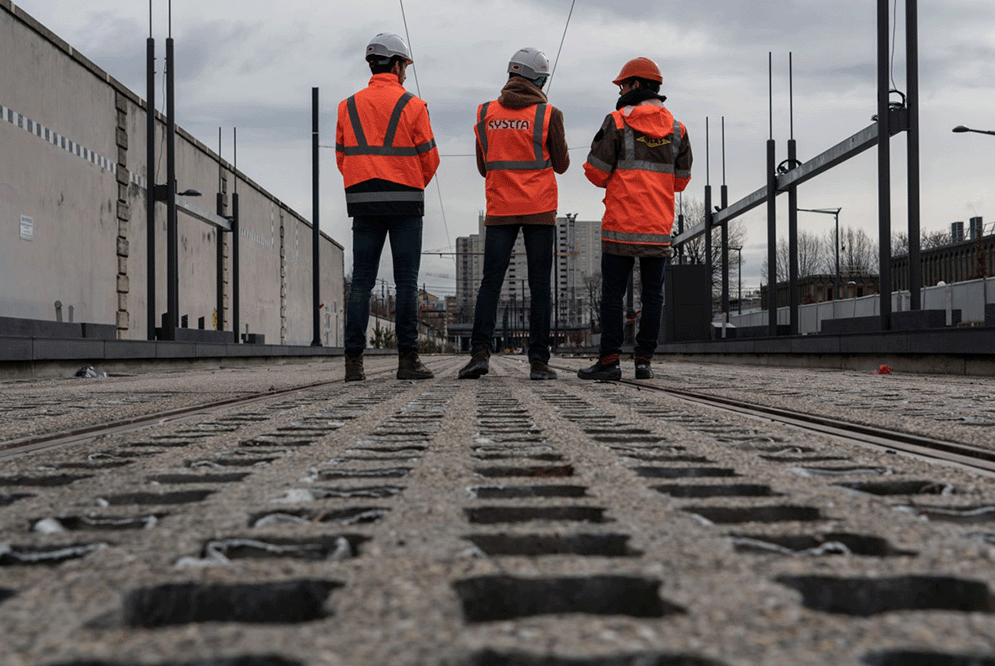
INHERENT FACTORS IN CONSTRUCTABILITY: CONSIDERATIONS
Inherent factors in constructability are pivotal considerations that significantly impact project success:
Construction knowledge and methodology, encompassing scheduling, sequencing, and site planning.
Accessibility, necessitating the minimization of road blockages and optimization of materials deliveries and exits.
Innovation as a driver of progress, fostering the adoption of cutting-edge practices.
Effective team skills for seamless collaboration among stakeholders, enhancing project efficiency.
Environmental consciousness guiding decisions towards building practices that enhance efficiency, reduce energy consumption, and minimize waste generation.
Proactive risk management involving early visualization and mitigation of potential hazards, endorsing the adoption of less risky concepts to safeguard project integrity.
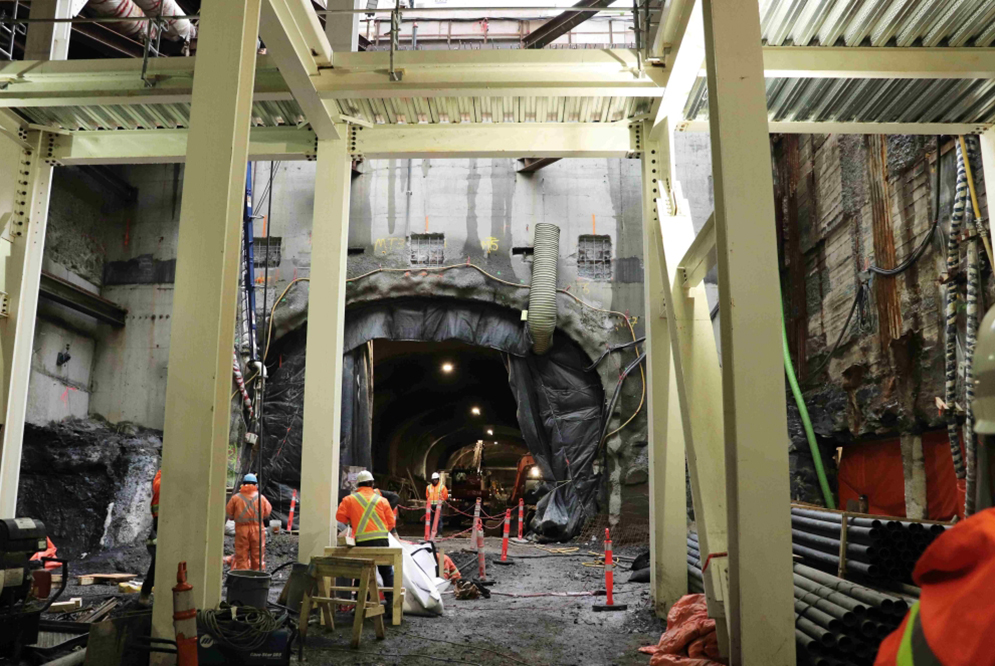
MAXIMIZING PROJECT POTENTIAL:
THE POWER OF EARLY CONSTRUCTABILITY REVIEWS
Undertaking a constructability review during the initial phases of a project plays a pivotal role in assisting decision-makers in selecting the most advantageous options. This proactive measure not only helps in the early detection and resolution of potential issues but also prevents them from escalating into significant challenges. By strategically optimizing spaces, such reviews can effectively reduce expropriation surfaces and mitigate traffic disruptions, thereby enhancing overall project efficiency and public satisfaction.
The insights garnered from constructability reviews are invaluable for planners, enabling them to anticipate construction methods and associated risks. This foresight facilitates more effective scheduling and phasing processes, ultimately leading to smoother project execution and improved resource allocation. Moreover, by minimizing errors and subsequent corrections, constructability reviews contribute to a reduced environmental footprint, promoting sustainability in construction practices.
Additionally, the early identification of potential problems through constructability assessments allows for better risk assessment during the design phase, enhancing project resilience and reducing the likelihood of costly delays or setbacks. Moreover, by emphasizing constructability, safety risks can be minimized, ensuring a safer working environment for all project stakeholders.
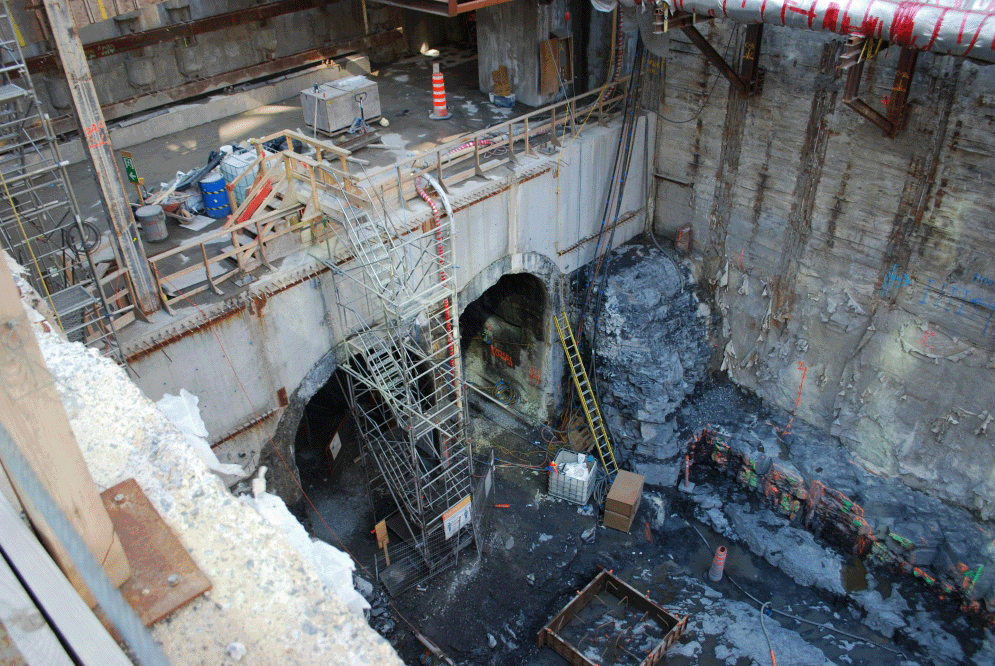
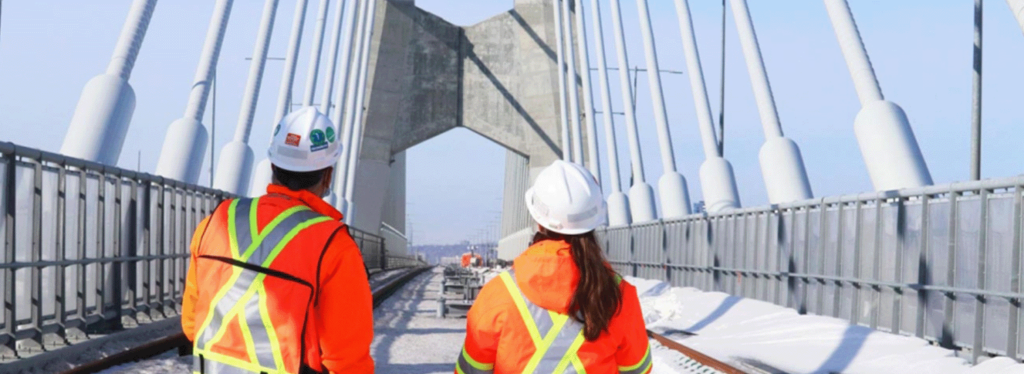
CONSTRUCTABILITY AT EACH STAGE OF THE PROJECT
Feasibility studies: In the initial stages of feasibility studies, our focus is on anticipating potential issues and developing proactive approaches to prevent, navigate, or efficiently resolve them.
Preliminary engineering: In the early phases of the engineering process, we apply principles of constructability to enhance “Safety by Design” practices. This involves influencing the design process by considering factors such as planning, potential construction methods, and the selection of materials. Additionally, we conduct thorough assessments of local construction expertise to determine the feasibility of incorporating customary methods and actively engage with Value Engineering to optimize project outcomes.
Detailed design: In the detailed design phase, we thoroughly analyze various aspects of work area planning, including deliveries, crane operations, hoarding areas, and loads on existing structures, as well as potential interactions with neighboring structures, utilities, tunnels, and other factors. Furthermore, we collaborate with value engineering to optimize both functionality and costs, while also evaluating procurement timelines’ impacts on the project schedule. We also assess the trade-offs between construction speed and expenditures engage with planners to address any clashes between construction activities and project schedules.
Construction: Throughout the construction phase, we conduct thorough reviews of the contractor’s schedule in relation to the progress of construction activities. Simultaneously, we examine possibilities for environmental optimization to ensure sustainable practices are implemented.
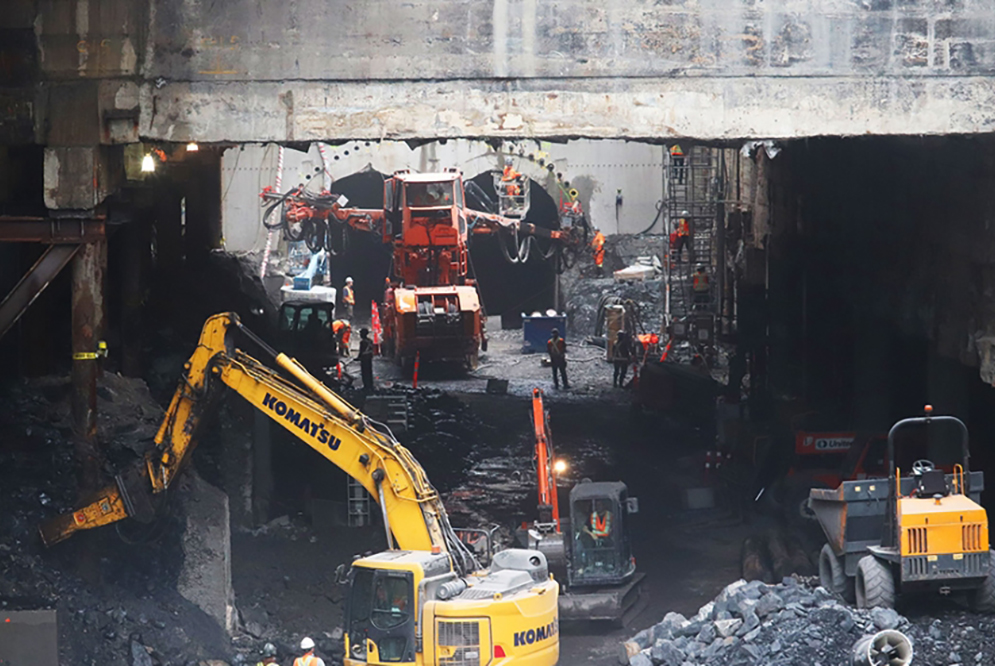
STREAMLINING CONSTRUCTION EXCELLENCE:
INTEGRATED CONSTRUCTABILITY REVIEWS
Processes will encompass constructability reviews at every stage, ensuring that all stakeholders consider constructability:
- Conducting constructability reviews during project planning to anticipate risks, identify scheduling bottlenecks, and address integration issues.
- Integrating constructability reviews into design processes to assess constraints and incorporate them into planning, phasing, and procurement, thereby enhancing ease of construction within the design.
- Implementing constructability reviews to optimize planning and waste management strategies.
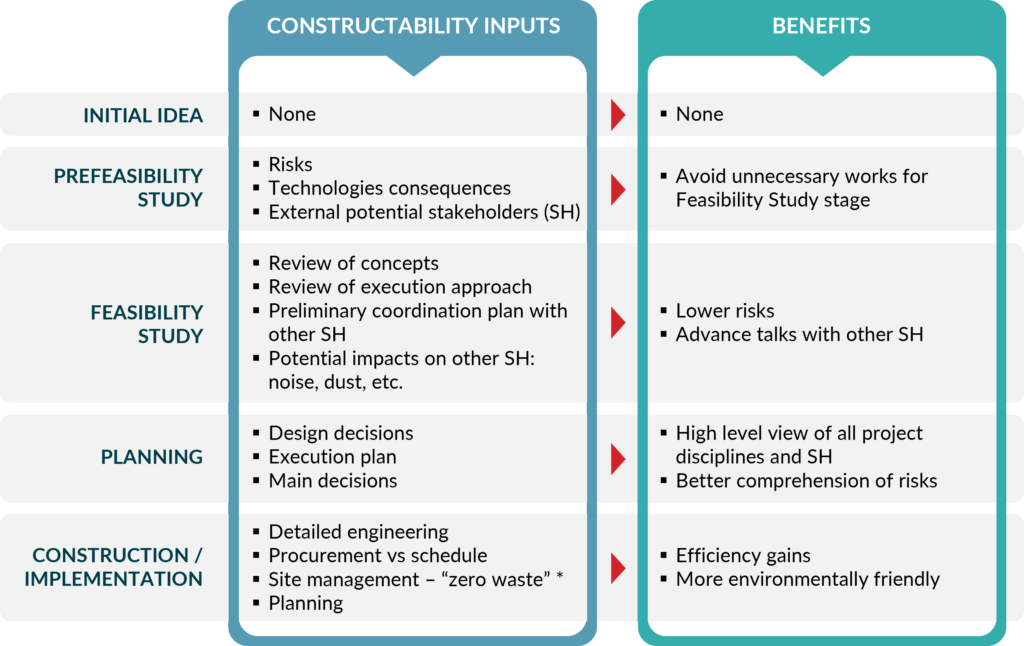
MASTERING CONSTRUCTABILITY: KEY TO PROJECT SUCCESS
In summary, constructability involves the efficient and timely construction of projects while maintaining adherence to initial requirements. It stands as a critical component of project management.
Multidisciplinary experts must visualize the project comprehensively, much like elite athletes, in order to ensure seamless coordination throughout all project stages. Their involvement spans from inception to completion.
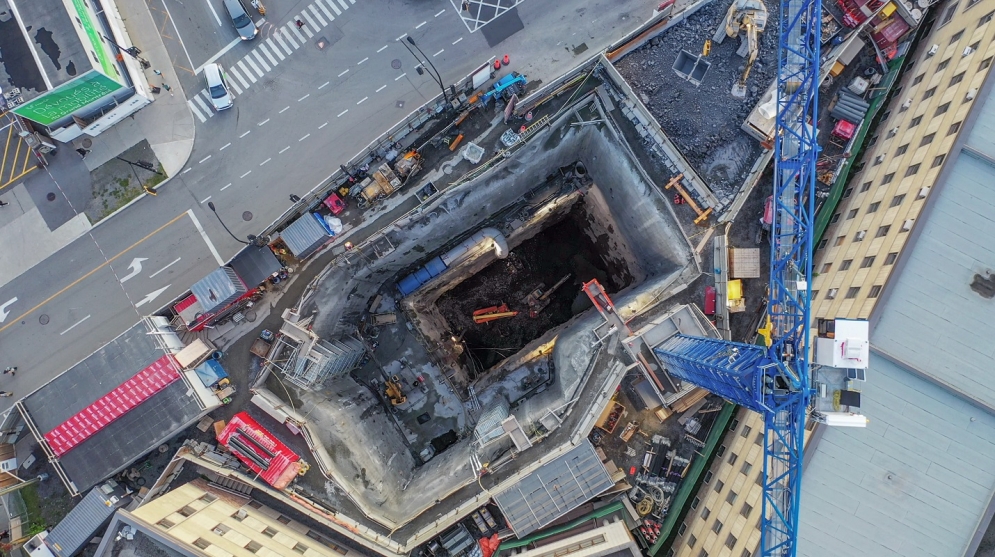
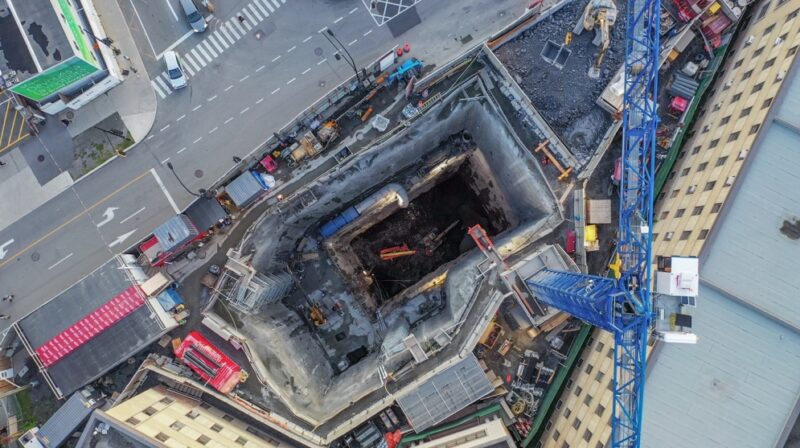
 Australia
Australia  Brazil
Brazil  Chile
Chile  China
China  Columbia
Columbia  Denmark
Denmark  Egypt
Egypt  France
France  India
India  Indonesia
Indonesia  Ireland
Ireland  Italy
Italy  Malaysia
Malaysia  New Zealand
New Zealand  Norway
Norway  Panama
Panama  Peru
Peru  Poland
Poland  Portugal
Portugal  Saudi Arabia
Saudi Arabia  Singapore
Singapore  Spain
Spain  South Korea
South Korea  Sweden
Sweden  Taiwan
Taiwan  Thailand
Thailand  Türkiye
Türkiye  United Kingdom
United Kingdom  United States
United States  Vietnam
Vietnam